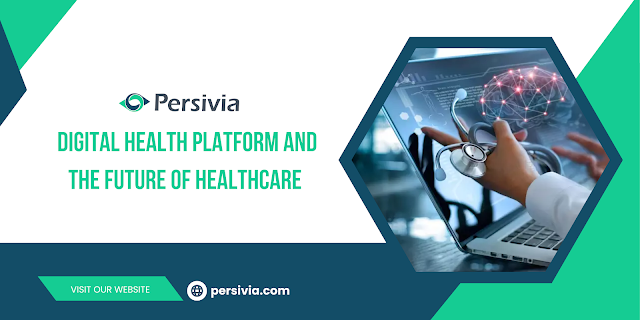It is hardly a surprise that the healthcare sector is embracing digitalization at this time when cell phones have practically become extensions of our identities. Digital health platform is not just a trendy medical term. It is revolutionizing how we approach wellness, disease management, and patient care.
The Rise of Digital Health
Do you recall the days when waiting rooms at doctor's appointments required leafing through old magazines? Those days fading fast. A new era in healthcare efficiency and accessibility is being welcomed by digital healthcare platforms. In previously unthinkable ways, these platforms act as a bridge, linking patients, providers, and health data.
What Makes Digital Health Platforms Check?
- Real-time health monitoring
- Seamless data sharing between healthcare
providers
- Personalized treatment plans
- Enhanced patient engagement
- Streamlined administrative processes
Breaking Down Barriers
One of the most significant benefits of digital health platforms is their capacity to break down geographical barriers. Rural regions, which are frequently underserved in traditional healthcare models, now have access to experts and advanced care alternatives via telemedicine technologies built into these platforms.
Data: The New Vital Sign
Data reigns supreme, especially in the world of digital health. These platforms collect and analyze vast amounts of health information, enabling:
- Predictive healthcare identifies
probable health conditions before they become serious.
- Precision medicine involves
tailoring therapies to specific genetic profiles.
- Population health management entails monitoring and treating health issues on a bigger scale.
The Human Factor In This Electric Age Is Still Crucial!
Though technology is driving this change in healthcare, it's important to remember that the goal is to enhance treatment. Is not to take the place of the human element. When adopting a digital health platform, better communication between patients and healthcare providers can result in more personalized care and stronger interactions.
Possibilities and Difficulties
The emergence of health platforms is not without its difficulties, as is the case with any notable change:
- Ensuring the security and privacy of data
- Overcoming the Digital Divide
- Integrating with existing healthcare systems
However, these challenges provide opportunities for innovation and progress. These platforms are becoming more inclusive, secure, and interoperable with the infrastructure of traditional healthcare as they develop.
The Future of Healthcare is Digital!
Digital health platforms are leading the way in this rapid transformation of the healthcare industry. With artificial intelligence, augmented reality, and other advanced technologies, we may anticipate these platforms being even more advanced in the future to further enhance patient outcomes and healthcare efficiency.
Platforms like Persivia's Carespace Digital Health Platform are not simply on the way in this digital health revolution, they're leading it. Through the integration of all-inclusive health management technologies with intuitive user interfaces, healthcare is becoming more affordable, effective, and customized than it has ever been.




No comments:
Post a Comment
Please do not enter any spam link in the comment box